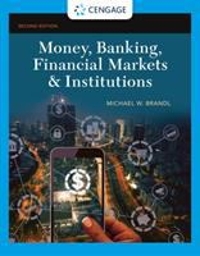Please answer these two questions correctly and in a detailed way so i can learn how to solve them.
thank you


You figure that the total cost of college will be $101,000 per year 18 years from today. If your discount rate is 8% compounded annually, what is the present value today of four years of college costs starting 18 years from today? The present value today of four years of college costs starting 18 years from today is $ . (Round to the nearest dollar.) When Alfred Nobel died, he left the majority of his estate to fund five prizes, each to be awarded annually in perpetuity starting one year after he died (the sixth one, in economics, was added later). a. If he wanted the cash award of each of the five prizes to be $50,000 and his estate could earn 9% per year, how much would he need to fund his prizes? b. If he wanted value each prize to grow by 4% per year (perhaps to keep up with inflation), how much would he need to leave? Assume that the first amount was still $50,000 c. His heirs were surprised by his will and fought it. If they had been able to keep the amount of money you calculated in (b), and had invested it at 9% per year, how much would they have in 2014, 118 years after his death? a. If he wanted the cash award of each of the five prizes to be $50,000 and his estate could earn 9% per year, how much would he need to fund his prizes? To fund the five prizes, he would need $ (Round to the nearest dollar.) You figure that the total cost of college will be $101,000 per year 18 years from today. If your discount rate is 8% compounded annually, what is the present value today of four years of college costs starting 18 years from today? The present value today of four years of college costs starting 18 years from today is $ . (Round to the nearest dollar.) When Alfred Nobel died, he left the majority of his estate to fund five prizes, each to be awarded annually in perpetuity starting one year after he died (the sixth one, in economics, was added later). a. If he wanted the cash award of each of the five prizes to be $50,000 and his estate could earn 9% per year, how much would he need to fund his prizes? b. If he wanted value each prize to grow by 4% per year (perhaps to keep up with inflation), how much would he need to leave? Assume that the first amount was still $50,000 c. His heirs were surprised by his will and fought it. If they had been able to keep the amount of money you calculated in (b), and had invested it at 9% per year, how much would they have in 2014, 118 years after his death? a. If he wanted the cash award of each of the five prizes to be $50,000 and his estate could earn 9% per year, how much would he need to fund his prizes? To fund the five prizes, he would need $ (Round to the nearest dollar.)








